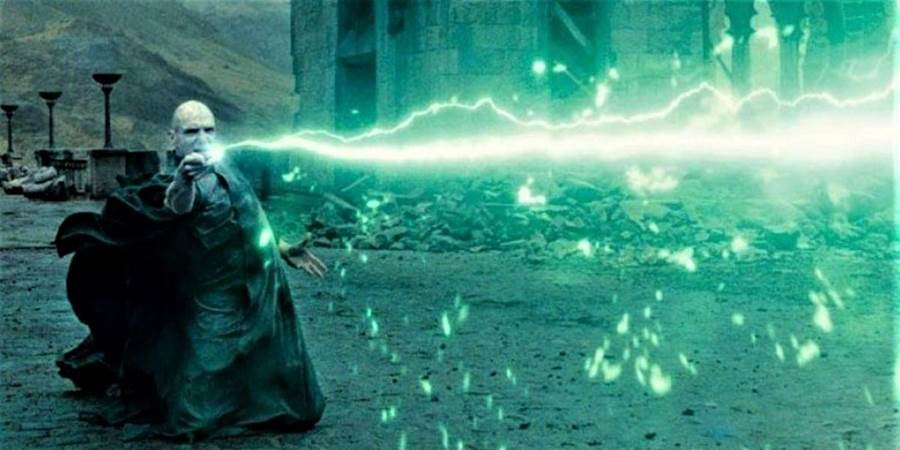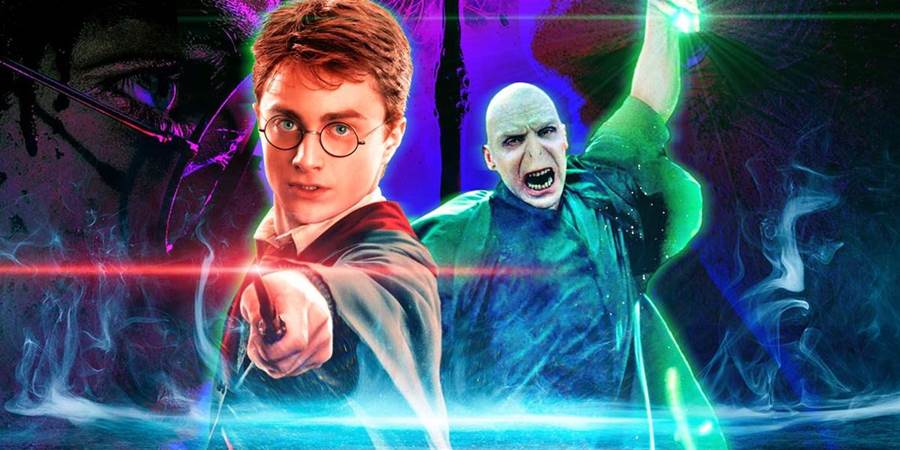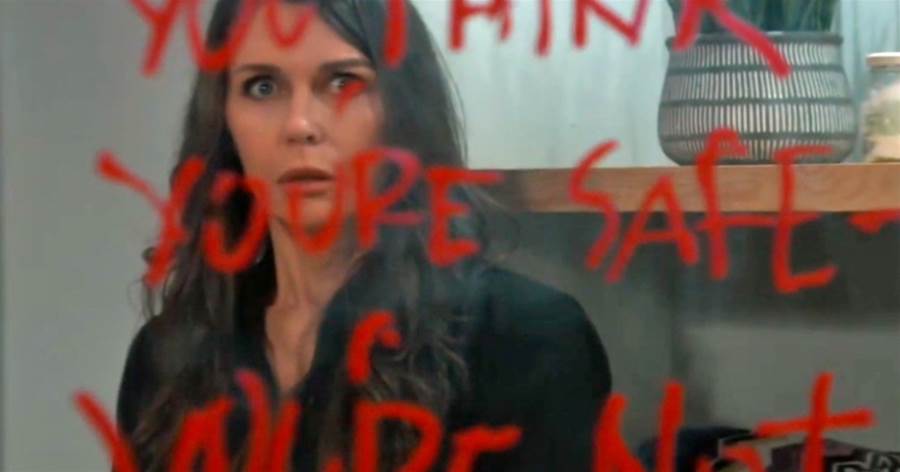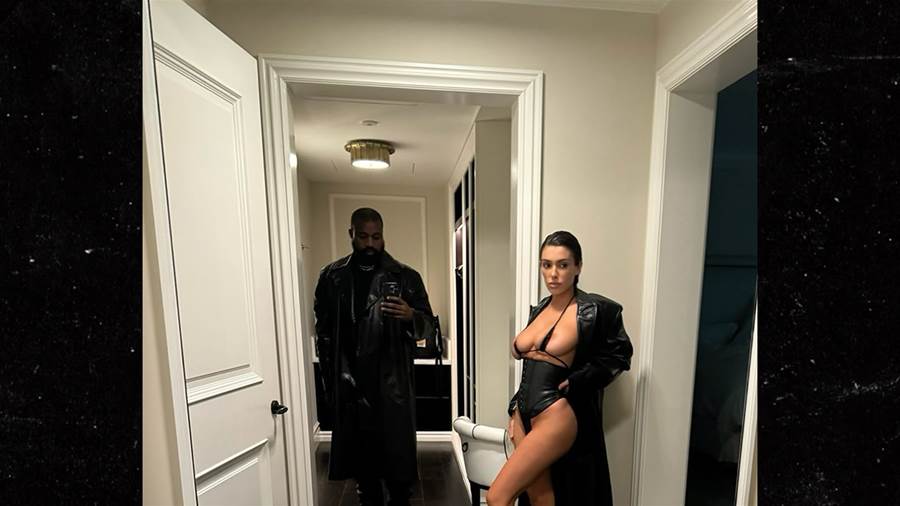
It's important to remember the ongoing controversial statements by the creator of the franchise. CBR supports the hard work of industry professionals on properties fans know and love and the wider world of that fans have adopted as their own. You can find CBR's continuing coverage on J.K. Rowling .
For readers who grew up with , the incantation "avada kedavra" is likely as burned into their skulls as Harry's lightning bolt scar. The Avada Kedavra inspires fear in the series since the curse can kill people quickly, and it's completely unavoidable with other protective spells. However, while all
fans are intimately aware of the words used to cast the killing curse, they are likely not sure exactly where it comes from. To be fair, while author J.K. Rowling has offered her own explanation for the phrase, even some etymologists would take issue with the spell's true origin.
To explore the true origin and meaning of the spell, fans need to look at its direct inspiration, abracadabra. Speaking what many fans already assumed, that avada kedavra was a reference to the popular magical phrase uttered by many a magician. However, the explanation given by Rowling regarding the phrase's origin is contested by language experts.
Likely Inspiration:
Origin:
Meaning:
Avra kehdabra
Aramaic
I will create as I speak
Abbada ke dabra
Chaldean
Perish like the word

There is no solid proof for a singular origin of "abracadabra," which is the inspiration of the Avada Kedavra curse. Instead, language experts have pinned down the . The first is an Aramaic phrase, "avra kehdabra", which translates to "I will create as I speak." Etymologists who support this origin believe that it is the more likely of the two options, as creating by speaking seems to imply a sort of magical word or act being performed.
Funnily enough, while Rowling credited the origin of her killing curse to the Aramaic phrase, the translation she used for it was actually of a different origin.
Rowling said that the origin of abracadabra was Aramaic and meant "let the thing be destroyed," which was incorrect. What she was most likely thinking of was the Chaldean phrase "abbada ke dabra," which is the second possible origin that etymologists believe could have inspired abracadabra. The Chaldean phrase translates to "perish like the word," similar to Rowling's "let the thing be destroyed" claim. While the Aramaic phrase may map more cleanly onto the way most people think of abracadabra, the Chaldean phrase is much closer in meaning to
.

Spell
Origin
Meaning
Crucio
Latin
Torture and crucifixion
Imperium
Latin
Command or authority
Expecto Patronum
Latin
I wait for a guardian
Petrificus Totalus
Latin/Greek
Make rock totally
Expelliarmus
Latin
Drive out a weapon
Lumos
Latin
To have light
Nox
Latin
Night
Accio
Latin
Summon
Alohomora
Hawaiian/Japanese/Latin
Alohora= Hawaiian greeting Komora= to open in Japanese Mora= obstacle in Latin Together it could mean "Hello, obstacle" or "Hello, I open"

Similar to avada kedavra, etymology can be used to find the direct meaning of many spells. , which can be easily seen in the other two unforgivable curses: crucio and imperio. The prefix cruc- means cross but has come to be associated with torture due to the practice of crucifixion. Imperium in Latin means command or authority. The suffix -io is used to refer to the science of a particular practitioner; for example, biologio (biology) is what biologos (biologists) practice. This would mean that crucio is the science or practice of torturers and imperio that of commanders or authorities.
Another great example is the spell "Expecto Patronum." This is one of the most important spells in the franchise, as it saves Harry's life several times throughout the series. It also contains Latin roots, and the phrase means "I wait for a guardian," which is apt, taking into account that it conjures a magical animal form made of light that protects the spellcaster. What's more, . This takes the meaning of the spell even further, as the first time Harry conjures it, at the end of he thinks his father is going to arrive to save him, but Harry saves himself from the dementors.
Name
Origin
Meaning
Remus Lupin
Latin
Lupus means wolf and Remus is a character from Roman mythology raised by wolves.
Sirius Black
Greek
Sirius means Dog Star. Together it would hit at Sirius as a black dog.
Albus Dumbledore
Latin
Albus means white in Latin, which is likely connected to Dumbledore's bear. Dumbledore means bumblebee in old English because connects Dumbledore with music and humming.
Bellatrix Lestrange
Latin
Bellatrix means female warrior.
Fleur Delacour
French
Flower of the court.
Hermione Granger
Greek
Hermione means "well-born.
" It's also an important name in Greek mythology as she's the daughter of King Menelaus and Helen of Troy.
Narcissa Malfoy
Greek Mythology
Narcissa is inspired by Narcissus, the character in Greek mythology who fell in love with his reflection.
Severus Snape
Latin
Severus means stern.
Draco Malfoy
Latin/ French
Draco means dragon in Latin, while Malfoy comes from the French "Mal foi" which means "bad faith."


The Harry Potter franchise follows the adventure of a young boy introduced a whole new world of magic, mayhem and darkness. Traversing the obstacles in his path, young Harry's rise to heroics pits him against Lord Voldemort, one of the most dangerous wizards in the world and all his minions.
Another way Rowling used etymology in was in the naming of her characters. For example, Remus Lupin's name hints at his werewolf status. Lupus is the Latin word for wolf, and Remus was one of the two founding brothers of Rome said to be raised by wolves. Readers familiar with the dog constellation Sirius may also have been able to figure out that the big black dog following Harry around
, since Sirius usually refers to a star, often called as well "Dog Star."
However, Rowling's penchant for naming characters using word association has landed her in some hot water. Critics quickly point out that she seemingly continues this pattern with one of the few prominent Black characters, Kingsley Shacklebolt. Many fans consider it pretty egregious for Rowling to associate one of her few Black characters with the word shackle. Others criticized as well Rowling's selection of the name "Cho" means butterfly in Japanese, and "Chang" means "free" in Chinese, but together it's an unlikely Asian name, which fans consider racist.
While Rowling's use of etymology may have helped her come up with memorable spells and character names, it seems to also be another way she has stirred up controversy among current and former fans.



















